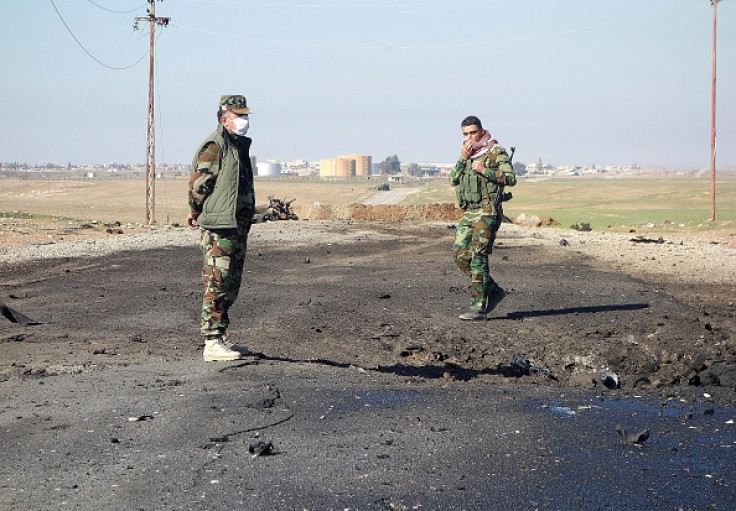Isis 'working very seriously' on developing chemical weapons

The Islamic State (Isis) has reportedly set up a specialised research branch to develop chemical weapons. The terror group has employed scientists from Iraq, Syria and some other neighbouring countries to develop advanced weapons.
"Daesh [another name for the IS] is working very seriously to reach production of chemical weapons, particularly nerve gas," Hakim al-Zamili, head of the Iraqi parliament's security and defence committee, told the Associated Press. He added: "That would threaten not just Iraq but the whole world."
The development raises alarming questions for the western world, which is on high alert, following the Paris massacre of 129 people. Although, international investigators have said that IS once used mustard gas (sulphur mustard), on the battlefield in Iraq and Syria, the US does not believe the group has the capability to develop sophisticated weapons, which it could potentially use to target major cities around the world.
Meanwhile, French Prime Minister Manuel Valls warned on 19 November that IS could carry out chemical attacks. He said: "Terrorism hit France not because of what it is doing in Iraq and Syria... but for what it is. We know that there could also be a risk of chemical or biological weapons."
Valls's warning should be taken "very seriously" as IS would be looking at "evermore desperate ways to attack us", said Hamish de Bretton-Gordon, former commanding officer of the UK's Chemical, Biological, Radiological and Nuclear Regiment .
"We have seen them use improvised chemical weapons like chlorine in Syria and that is a threat that could be used to create terror on the streets of Europe and elsewhere," he told Sky News. "We are also aware that they have been looking at anthrax and ricin, which are biological toxics, to potentially use," he Bretton-Gordon claimed.
"I would be very confident that some sort of attack like that could not materialise in the UK and probably most of the capitals around the globe because people are aware of it," he said. "And now that the French have come clean today about it, everyone will be renewing their procedures, processes and equipment to make sure the public are kept safe."
Moreover, Iraqi officials said they are in the dark about what the IS is doing because it could experiment in areas under its control in Syria and Iraq. "They [IS] now have complete freedom to select locations for their labs and production sites and have a wide range of experts, both civilians and military, to aid them," a senior Iraqi intelligence official was quoted as saying.
© Copyright IBTimes 2024. All rights reserved.





